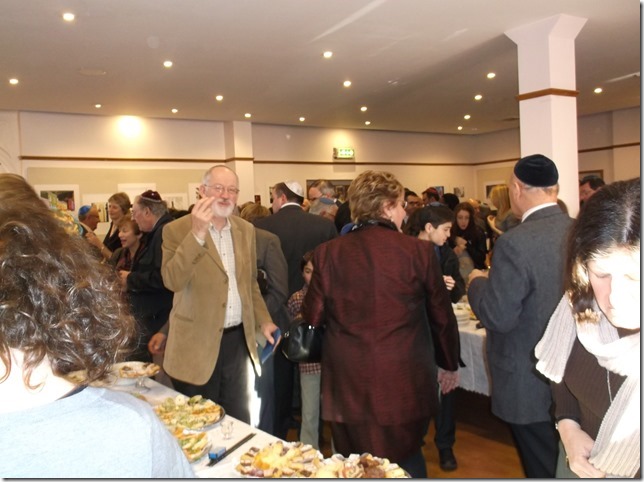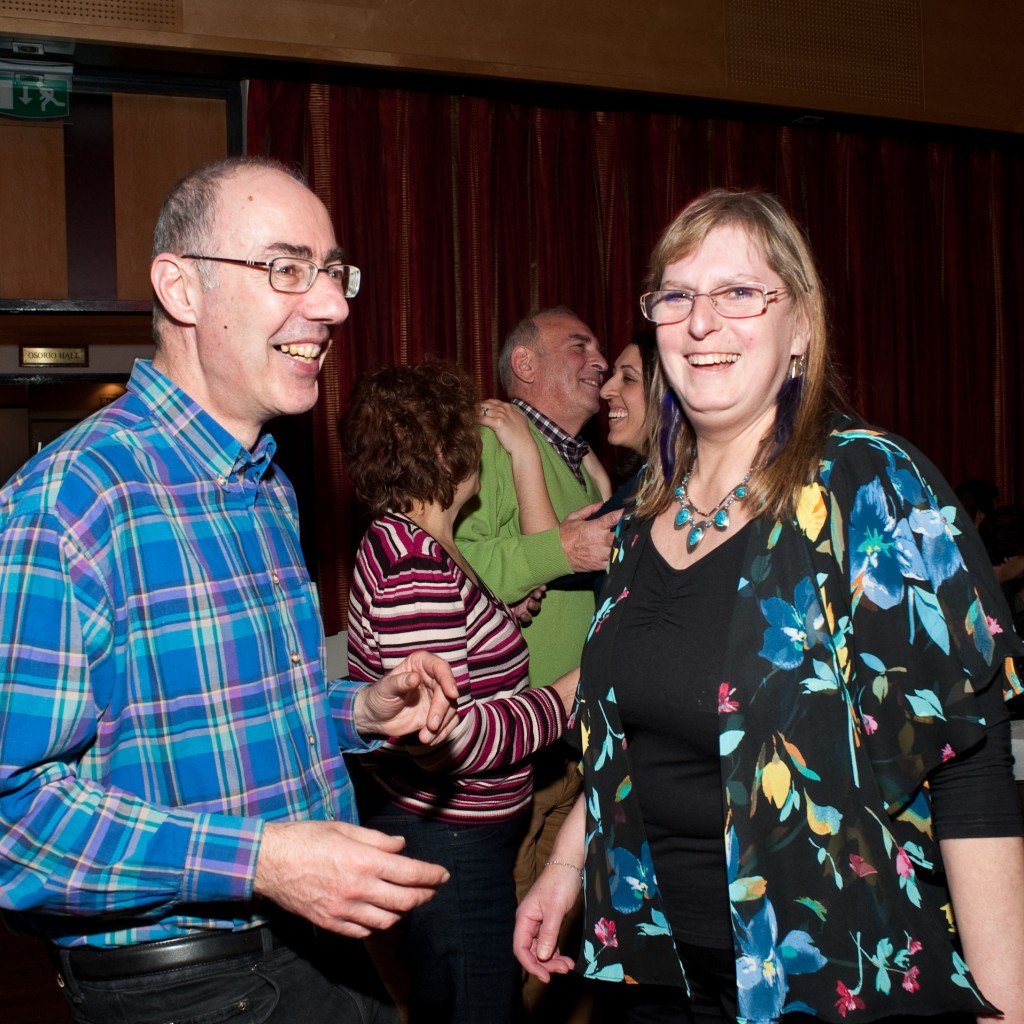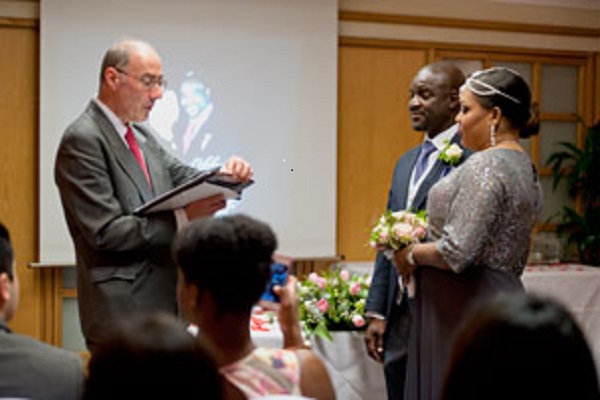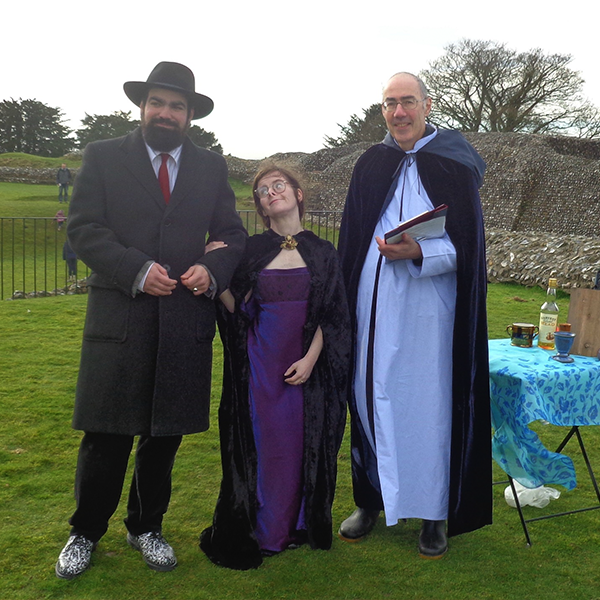by Michael | Feb 17, 2015 | Blog
At first sight, weddings are usually considered a “young person’s thing”, but it shouldn’t be overlooked that there are plenty of people marrying at a more mature age.
Why marry when older?
In many cases, people are choosing to put off their wedding longer so that they can enjoy themselves before being encumbered by a family. They may want to establish a business or career, and need to devote their time to this.
Some people believe they shouldn’t marry until they are ‘sure’ that the relationship has a good chance of lasting. They may lack confidence.
Older people are returning to the marriage market for another go. They may be divorcees or widows/widowers.
Gay couples in a civil partnership are increasingly looking to convert their legal status to marriage, and many established pairs are therefore taking advantage.
Source: www.columbian.com
Should the ceremony be different?
A church wedding (if permitted) and, indeed, a register office ceremony, will be the same for an 18-year-old or for a 58-year-old. They are basically standard ceremonies.
You will need a civil ceremony, if you’re looking for a bespoke ceremony.
Civil Ceremony suggestions
By the nature of the thing, no two civil ceremonies are likely to be the same, so it is impossible to be prescriptive.
Nevertheless, when approached by more mature couples, I still have the preliminary chat and establish what elements (if any) they have in mind. I make suggestions and then, over time, send them drafts for them to approve.
The areas I am likely to cover include music, rituals and readings.
- There is no reason why older couples can’t enjoy the same sort of music as youngsters (if that’s their choice). They may choose the same rituals (a Unity Candle is always lovely – but older pairs may have families they want to involve, so this ritual can be expanded to include offspring etc.). Either age group may decide to include the offering of a gift, such as a red rose, to their parents during the marriage.
A good celebrant ought be able to supply suitable suggestions.
One or two rituals (such as ‘jumping the broom’) may be less advisable for the more mature couples!
- There’s no reason why age should prevent couples from writing and/or reciting their vows or having the rings blessed.
- Readings can be whatever the couple want, and many are not age-specific in any way. However, there are some suitable for more mature couples. I like this anonymous passage (for very mature couples!), and I conclude with it:
“The question is asked: ‘Is there anything more beautiful in life than a young couple clasping hands and pure hearts in the path of marriage? Can there be anything more beautiful than young love?’ And the answer is given: ‘Yes, there is a more beautiful thing. It is the spectacle of an old man and an old woman finishing their journey together on that path. Their hands are gnarled but still clasped; their faces are seamed but still radiant; their hearts are physically bowed and tired but still strong with love and devotion. Yes, there is a more beautiful thing than young love. Old love.’

by Michael | Feb 3, 2015 | Blog
You don’t need me to tell you how important it is that your reception should be successful. Hopefully, the wedding ceremony will have been beautiful and memorable – and a good celebrant will ensure just that. The reception is a different kettle of fish.
Of course, an article like this cannot hope to cover all kinds of receptions – budget and size may make all the difference. I’m assuming that you’re not using a wedding planner, although I have often argued in favour of engaging one.
Anyway, here at least are a few ideas that might be helpful.

Invitations
I have heard it suggested that you could have space on the RSVP cards for guests to choose their favourite song (or songs) for the reception. That way, everybody will be guaranteed to get up and dance at some time or another. Oh, do check beforehand that nobody’s choice is inappropriate!
The Personal touch
If there’s a seating-pan, a slightly time-consuming but lovely idea would be to place a sincere, hand-written note at each guest’s place. You may not get a chance later, but this way you can at least ensure you have thanked your guests for attending. They’ll surely appreciate the gesture.
Surprises
Extras, such as magicians, chocolate fountains, photo booths, can add something unexpected and exciting to the event (and most of your guests, who, unlike you, won’t have been studying wedding entertainment videos and magazines, will love the unexpected bonus).
Take-homes
You don’t need to give any gifts at all, but if you decide to, these could be something that ties in with the theme of your wedding. They needn’t be more than a packet of seeds for the garden.
Children
If you’re inviting little children, they could be asked to bring a favourite cuddly toy. Then if you provide a special table for these toys, the children can enjoy creating their own special party.
Depending on space, you might be able to organize a few party games. (This could actually be a possibility for some of the adults too!)
Maybe teenagers (who won’t want to be with the kiddies and certainly not with Mum and Dad!) could have a room to themselves set up with an Xbox or an area where they can sit and text comfortably during the speeches.
Drink
At least try and ensure that everyone’s first drink is free (and make sure they realise that too!). It’s nice to offer an alternative for non-drinkers such as a non-alcoholic cocktail (with the ingredients listed on a sign by the bar).
There should be enough food and drink for guests – especially if they’ve come quite a distance. Nibbles and drinks could be available for between the ceremony and reception. Jugs of water should (as it were!) be on tap.
Guest book
Apart from making a wonderful souvenir for the couple, people enjoy signing a guest-book and thus making their own contribution.
Some of these ideas will fit the bill, and, if you make the necessary preparations, you can relax, safe in the knowledge that you will be offering something a little different that will make your reception stand out (and for the right reasons!)!

by Michael | Jan 13, 2015 | Blog
Whether priest, registrar or civil celebrant, your officiant can make or break your wedding day. It’s so important that you can relate to them and trust them. With a priest or a registrar, you don’t have much choice. But you can choose your civil celebrant.
The vital question therefore is: how do I choose the right one?
Which officiant?
Obviously, your wishes, beliefs and budget are all factors.
A religious ceremony is just that – and it follows a set formula which allows little room for personalisation.
The same applies to register office weddings – exceptthat there may be no religious mentions at all.
To get the best of both worlds, you can combine register office (or a religious service) and civil ceremony. For example, hold the (legal) wedding in the morning and then have the ceremony that actually fits with your dreams later in the day.

Would you like something a bit different, perhaps?
You certainly should be free to choose the type of ceremony you’ll be having – especially on the most important day of your life. You may have to compromise (with parents, for example). However, ideally, the service should be a deeply personal experience that reflects both your and your partner’s beliefs, values and style.
That’s why you may opt for a civil celebrant. So how do you choose the right one for you?
Find your Civil Celebrant
You may already know of a celebrant through a referral, say. Otherwise, you will probably turn to Google. You can look under affiliated groups (eg UK SoC, British Humanist Association, etc.). People listed there will have been trained and offer minimum (actually, often excellent) standards. Otherwise, you might key in “Civil Celebrant Harrow” and, hopefully, “Vows That Wow” will appear!
Check your Celebrant out
Once you’ve found a possibility or two, have a look at their website. Read the testimonials, but, possibly more important, see their video. This will give you an idea of the sort of person they are. You will not want to work with someone you feel uncomfortable with!
What to find out
Having settled on your celebrant, these are things you need to know:
- First, establish if the celebrant is free on the date you have in mind
- If so, check if they will travel
- Ask about legal requirements, as licensed premises have strict rules
- Of course, you need a quote (although trusting and liking them should be more important)
- Ask how they operate – ie is there an initial meeting (where?) – and what the fee includes
- Try and get a sense of their experience, enthusiasm and character (just as there are many different sorts of ceremonies, so civil celebrants have different personalities)
- Check how flexible the ceremony may be (eg can you write your own vows?)
- You may want to ask about length of ceremony (although this will very much depend on your requirements)
If you feel happy that you would like this celebrant to conduct your ceremony, then your gut feeling is probably the thing to go with. However, make sure you read and understand their Terms & Conditions. There shouldn’t be any nasty surprises, especially with a bona fide professional, but it’s always as well to be vigilant.
Working with a professional will be a pleasure. You will be free to enjoy the unforgettable, unique experience that is so precious. A good civil celebrant should be able to provide precisely what you are looking for.
by Michael | Jan 6, 2015 | Blog
Maybe 2015 is the year that you are planning to marry? You want to make it a great year. You have so much excitement ahead of you. Choices, decisions and expenses are things you’ll have to wrestle with. You’re planning the biggest day of your lives – and that’s really pleasurable – but be aware that this often comes with pressure in its wake.
Pressures
- Your parents may be putting financial or psychological pressure (or both!) on you to have the ceremony that THEY want.
- You may underestimate the timings involved or the things that need to be considered and put in place – the stress can increase as the big day approaches.
- Your suppliers may be a disappointment.
- You may have serious problems selecting your guests without causing offence.
Solutions
There’s no easy answer to point four. All I can suggest is that you carefully calculate your budget and then, in consultation with your intended (it’s essential that you work as a team throughout), decide who needs to be there, as well as whom you want to be there!
In order to reduce stress, start planning early. Do read my blog called “Wedding Countdown”, which has some useful advice (see http://wp.me/p5qOOT-s6).
If your parents are bankrolling the operation (or even if they’re not, but they’re putting their oar in regularly), don’t let them bulldoze you into doing what you don’t want to do or disapprove of. But you must be the best judge of how to handle them. However, it is your big day and your input should be respected. If they won’t see that, maybe you can offer a compromise (eg “We don’t want a religious ceremony, but we’d be OK with a blessing, if that makes you happy.”).
Finally, you want to be sure of your suppliers.
Referrals are best (though other people’s tastes may not always be the same as yours!). Do have a look at suppliers’ websites and don’t be afraid actually to speak to them before deciding. This applies to most suppliers, such as photographers, florists, civil celebrants, etc.
For the venue, go along and also meet the events organiser. Bring a list of questions, and be sure that you see and love the room where you want to be married or blessed.
Arrange to sample some of your caterers’ output before committing yourself.
Unless you’re planning a full religious service (officiated by your priest), try and get to know your civil celebrant beforehand. You need to feel at ease with and confident in him/her.
Some stress is inevitable, I think, but there are ways of minimising its effects and I hope this advice will help you to have that great year. And that’s my wish for all my readers.
by Michael | Nov 4, 2014 | Blog
A lot of people assume that a wedding should take place in the afternoon or, possibly, evening.
That makes some sense. It gives people living at quite a distance from the venue a chance to leave home at a respectable hour and not arrive too drained. Then they have the option of staying locally overnight after the festivities.
“I’m Getting Married in the Morning!”
But supposing it wasn’t that way round? What if guests stayed overnight before a morning ceremony and so were nice and fresh for it? True, they would have to watch what they drank, if driving back later that day, but it would not be ridiculous.
Another great reason for having the event in the morning is that it is normally considerably cheaper.
As there will be less competition at that time, the venue hire ought to cost less and you can probably get pay-per-plate items for a lot less than you would later in the day.
And remember, cheaper doesn’t have to mean worse.
The Ceremony
You should have no trouble getting the registrars to do their bit for you in the morning, and the same should certainly apply for the civil celebrant. It won’t affect the cost, but it will work every bit as well.
The Reception
Food
If you’re offering brunch, that means you can have breakfast and lunch items, which can add variety (without costing too much). You can offer a Full English (with vegetarian alternatives), but also, possibly, steaks, even salads, and waffles or the like.
Drink
Some people may not want to drink alcohol in the morning, so teas, coffees, mineral water, lemonade and fruit juice should be on offer. However, some people will definitely want a celebratory alcoholic drink or two, and some champagne may well be appreciated.
Revelry
It may be a (late) morning reception, but you can still have music and dancing (and certainly speeches – if you include those under the heading of ‘revelry’!). The entertainment may well be a little more subdued than you might expect at an evening gathering, but no less enjoyable for that!
There should also be a cake (people love the photo of the couple cutting the cake – and often enjoy the cake itself, of course!). Sweet stuff is sometimes less appreciated in the morning than later, but don’t expect too much for the doggy bag!
In conclusion
A brunch wedding can be as formal or informal as you like. That goes for the ceremony as well as the reception. For the festivities you can have food stations, or a regular sit-down four-course meal. You can have fine china, table service, flowers, entertainment for kids, and so on.
The joy is that the choice is yours, and for what should be considerably less expense, a morning wedding can be every bit as memorable and enjoyable as an afternoon one.
Michael Gordon can help prepare and conduct a tailor-made civil ceremony in or around London or, indeed, in Europe.




